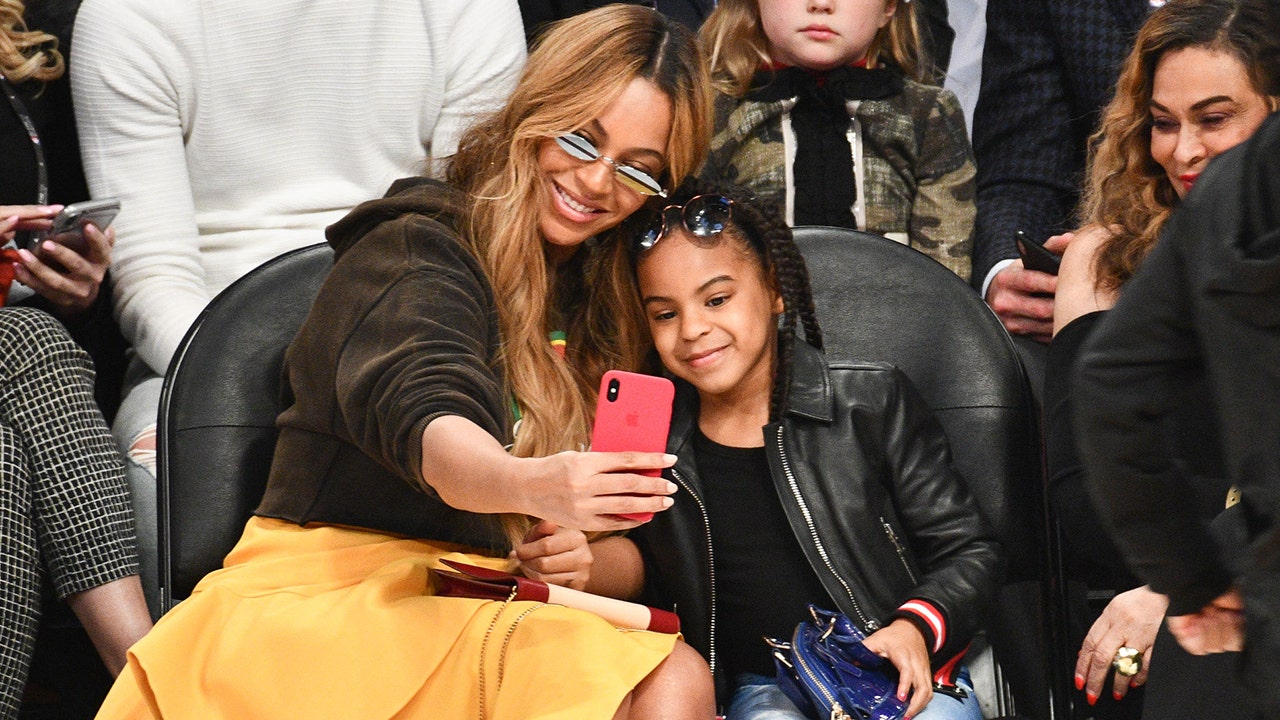TOKYO & MUNICH & BASKING RIDGE, N.J. — (BUSINESS WIRE) — Daiichi Sankyo Company, Limited (hereafter, Daiichi Sankyo) and AstraZeneca today announced the initiation of TROPION-Lung01, a global pivotal phase 3 head-to-head study of datopotamab deruxtecan (Dato-DXd; DS-1062), a TROP2 directed antibody drug conjugate (ADC), versus docetaxel in patients with advanced or metastatic non-small cell lung cancer (NSCLC) without actionable genomic alterations who have previously received platinum-based chemotherapy and immunotherapy.

Patients with advanced or metastatic NSCLC without actionable genomic alterations (such as EGFR, ALK, ROS1, NTRK, BRAF, RET, or MET exon 14 skipping) have demonstrated an unmet need after currently approved front-line and second-line therapies are exhausted. Current treatment guidelines recommend varying combinations of platinum-based chemotherapy and/or immune checkpoint inhibitors in the front-line and second-line settings based on lung cancer subtype, immune biomarker status and other factors.1 For patients whose cancer progresses after initial treatment containing a platinum-based chemotherapy and a checkpoint inhibitor, therapeutic options are limited.1
TROP2 expression has been associated with poor overall and disease-free survival in several types of solid tumors. TROP2 expression has been observed in the majority of adenocarcinoma and squamous cell carcinoma NSCLC.2,3,4 There are no TROP2 directed therapies or ADCs currently approved for the treatment of NSCLC.
“We recognize the need to continue to improve treatment for patients with NSCLC who are not eligible for currently approved targeted therapies, particularly those who progress following initial treatment with an immunotherapy and platinum-based chemotherapy,” said Antoine Yver, MD, MSc, Executive Vice President and Global Head, Oncology Research and Development, Daiichi Sankyo. “This head-to-head trial will determine whether targeting TROP2 with datopotamab deruxtecan will improve survival as compared to the standard therapy used in this setting.”
“TROP2 is highly expressed in NSCLC and other cancers, making it a promising target for therapeutic development,” said José Baselga, MD, PhD, Executive Vice President, Oncology R&D, AstraZeneca. “This trial will provide an opportunity to evaluate a targeted approach with datopotamab deruxtecan, a potent ADC specifically designed to enhance selective tumor cell death, while reducing systemic exposure to chemotherapy.”
TROPION-Lung01 was initiated following the encouraging clinical activity of datopotamab deruxtecan in patients with heavily pre-treated advanced NSCLC observed in the ongoing TROPION-PanTumor01 phase 1 trial, which completed enrollment of patients with lung cancer in October of 2020. Preliminary data from TROPION-PanTumor01 was recently presented at the 2020 American Society of Clinical Oncology (ASCO) Virtual Scientific Program (#ASCO20) and updated data will be presented at an upcoming medical meeting.
About TROPION-Lung01
This global, multicenter, randomized, open-label phase 3 trial will evaluate the efficacy and safety of datopotamab deruxtecan (6.0 mg/kg) versus docetaxel (75 mg/m2) in patients with advanced or metastatic NSCLC without actionable genomic alterations and with progression on or after platinum-based chemotherapy and anti-PD-1/anti-PD-L1 immunotherapy received either in combination or sequentially.
Approximately 590 patients will be randomized into two arms in a 1:1 ratio to receive either datopotamab deruxtecan or docetaxel. Randomization will be stratified by histology (squamous versus nonsquamous), most immediate prior therapy and geographic region.
The primary trial endpoints are progression-free survival and overall survival. Secondary endpoints include overall response rate, duration of response, time to response, disease control rate and patient reported outcomes. Safety endpoints include treatment emergent adverse events and other safety parameters. Pharmacokinetic and immunogenicity endpoints will also be evaluated.
The study will enroll patients at sites in North America, South America, Europe and Asia. For more information visit ClinicalTrials.gov.
About Non-Small Cell Lung Cancer (NSCLC)
Lung cancer is the most common cancer and the leading cause of cancer mortality worldwide; there were an estimated 2.1 million new cases of lung cancer in 2018 and 1.8 million deaths.5 NSCLC accounts for 80 to 85 percent of all lung cancers.6
For patients with advanced NSCLC that do not carry actionable genomic alterations (i.e., for which no targeted therapies are approved), treatment has traditionally been limited to platinum chemotherapy.7 The introduction of immune checkpoint inhibitors in the past two decades has offered improved survival rates over traditional chemotherapy regimens, creating new options and shifting treatment to a more personalized approach for subsets of patients with NSCLC. Over the past five years, immunotherapies have become part of the treatment paradigm.7
About TROP2
TROP2 (trophoblast cell-surface antigen 2) is a transmembrane glycoprotein that is overexpressed in many cancers.8 TROP2 expression has been associated with poor overall and disease-free survival in several types of solid tumors. TROP2 expression has been observed in up to 64% of adenocarcinoma and up to 75% of squamous cell carcinoma NSCLC.2,3,4 There are no TROP2 directed therapies or ADCs currently approved for the treatment of NSCLC.
About Datopotamab Deruxtecan (Dato-DXd; DS-1062)
Datopotamab deruxtecan (Dato-DXd; DS-1062) is one of three lead DXd antibody drug conjugates (ADCs) in the oncology pipeline of Daiichi Sankyo.
ADCs are targeted cancer medicines that deliver cytotoxic chemotherapy (“payload”) to cancer cells via a linker attached to a monoclonal antibody that binds to a specific target expressed on cancer cells. Designed using Daiichi Sankyo’s proprietary DXd ADC technology, datopotamab deruxtecan is comprised of a humanized anti-TROP2 IgG13 monoclonal antibody attached to a topoisomerase I inhibitor payload, an exatecan derivative, via a tetrapeptide-based cleavable linker with a drug-to-antibody ratio (DAR) of four.
TROPION is the broad and comprehensive clinical development program to evaluate the efficacy and safety of datopotamab deruxtecan across multiple TROP2 cancers as both a monotherapy and in combination with other anticancer treatments. In addition to TROPION-Lung01, datopotamab deruxtecan is currently being evaluated in a number of clinical trials, including TROPION-Lung05, a phase 2 study in patients with advanced or metastatic non-small cell lung cancer (NSCLC) with actionable genomic alterations previously treated with a kinase inhibitor and platinum chemotherapy and TROPION-PanTumor01, a phase 1 study in patients with advanced solid tumors that have progressed on standard treatments or for whom no standard treatment is available, which has completed enrollment of patients into a unresectable advanced NSCLC cohort and is currently enrolling patients into a triple negative breast cancer (TNBC) cohort.
Datopotamab deruxtecan is an investigational agent that has not been approved for any indication in any country. Safety and efficacy have not been established.
About the Collaboration between Daiichi Sankyo and AstraZeneca
Daiichi Sankyo and AstraZeneca entered into a global collaboration to jointly develop and commercialize trastuzumab deruxtecan (a HER2 directed ADC) in March 2019, and datopotamab deruxtecan (a TROP2 directed ADC) in July 2020, except in Japan where Daiichi Sankyo maintains exclusive rights. Daiichi Sankyo is responsible for manufacturing and supply of trastuzumab deruxtecan and datopotamab deruxtecan.
About Daiichi Sankyo Cancer Enterprise
The mission of Daiichi Sankyo Cancer Enterprise is to leverage our world-class, innovative science and push beyond traditional thinking to create meaningful treatments for patients with cancer. We are dedicated to transforming science into value for patients, and this sense of obligation informs everything we do. Anchored by our DXd antibody drug conjugate (ADC) technology, our powerful research engines include biologics, medicinal chemistry, modality and other research laboratories in Japan, and Plexxikon Inc., our small molecule structure-guided R&D center in Berkeley, CA. For more information, please visit: www.DSCancerEnterprise.com.
About Daiichi Sankyo
Daiichi Sankyo Group is dedicated to the creation and supply of innovative pharmaceutical therapies to improve standards of care and address diversified, unmet medical needs of people globally by leveraging our world-class science and technology. With more than 100 years of scientific expertise and a presence in more than 20 countries, Daiichi Sankyo and its 15,000 employees around the world draw upon a rich legacy of innovation and a robust pipeline of promising new medicines to help people. In addition to a strong portfolio of medicines for cardiovascular diseases, under the Group’s 2025 Vision to become a “Global Pharma Innovator with Competitive Advantage in Oncology,” Daiichi Sankyo is primarily focused on providing novel therapies in oncology, as well as other research areas centered around rare diseases and immune disorders. For more information, please visit: www.daiichisankyo.com.
References
1 NCCN Guidelines for NSCLC Version 1.2021.
2 Pak M, et al. World J Surg Oncol. 2012; 10:53.
3 Li Z, et al. Biochem Biophys Res Commun. 2016; 470:197-204.
4 Liu T, et al. PLoS One. 2013; 8:e75864.
5 Bray F, et al. CA: Cancer J. Clin. 2018;68:394-424. Global Cancer Statistics 2018.
6 American Cancer Society. Types of Non-Small Cell Lung Cancer. 2019.
7 Kim SY, et al. Lung Cancer Manag. 2020;9(3): LMT36.
8 Inamura K, et al. Oncotarget. 2017; 8(17):28725-28735.

Contacts
Global/US:
Victoria Amari
Daiichi Sankyo, Inc.
vamari@dsi.com
+1 908 900 3010 (mobile)
EU:
Lydia Worms
Daiichi Sankyo Europe GmbH
lydia.worms@daiichi-sankyo.eu
+49 (89) 7808751 (office)
+49 176 11780861 (mobile)
Japan:
Masashi Kawase
Daiichi Sankyo Co., Ltd.
kawase.masashi.a2@daiichisankyo.co.jp
+81 3 6225 1126 (office)
Investor Relations Contact:
DaiichiSankyoIR@daiichisankyo.co.jp
















